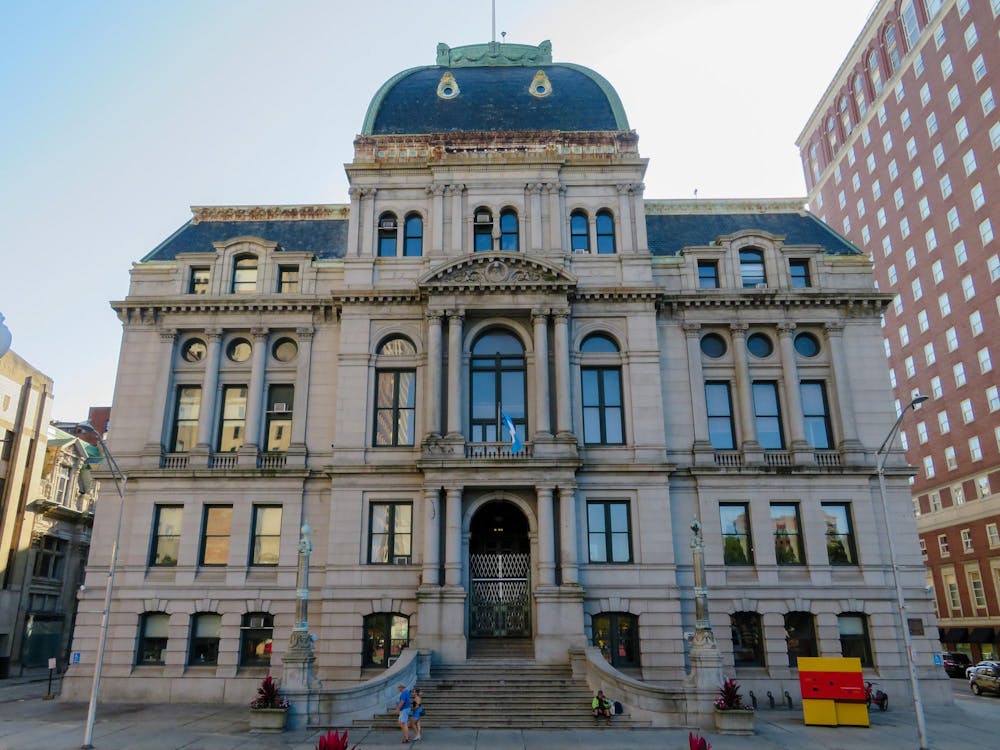Matos’ Misguided Benefaction to Biden and Harris Campaigns
A significant portion of Lt. Gov. Sabina Matos’ out-of-state travel was concerning the presidential campaigns of Joe Biden and Kamala Harris. Understandably, people often question the logic behind such political expeditions. Indeed, the actual benefit these campaigns brought to the wellbeing of Rhode Island citizens remains unclear. It’s worth noting, however, the cost was quite significant with state taxpayers contributing $6,586 for Matos’ combined trips.
In contrast, Gov. Dan McKee only spent 55 days out of state. Quite a contrast to the 90 days spent on travel by Gina Raimondo back in 2017. A focus on local matters and less time on frivolous travels gave McKee a better opportunity to address the true concerns of Rhode Islanders. Still, taxpayers were saddled with a combined expenditure of $12,949 for McKee’s travels, insinuating the need for better fiscal responsibility.
Rhode Island has often accommodated large national organizations, especially in times of presidential campaigns and fundraising dinners. These events pull local politicians away from their true responsibilities back home, as they don’t miss a chance to rub shoulders with the political elites. However, the overall advantage these social outings bring to Rhode Island is debatable.
The record of most frequent traveler in Rhode Island’s government in the past year goes to none other than Lt. Gov. Sabina Matos, with 58 out-of-state days to her credit. Her travel itinerary included locations such as Philadelphia and Las Vegas for presidential campaign events, and Chicago for the Democratic National Convention. Yet again, constituents are left to wonder just how beneficial these trips, funded on taxpayers’ dime, were.
Matos’ travel agenda also featured tourism meetings in San Juan, Puerto Rico; a National Supermarket Association gala in Atlantic City; and a Democratic Lieutenant Governors Association event in Sacramento, California. Despite participating in 23 trips over a year, it’s uncertain how these ventures promoted the interests of Rhode Islanders or her capacity as a public servant.
Lt. Gov. Dan McKee too, seized the opportunities to travel much to public dismay. His journey to Taiwan stirred up immediate controversy. It evidences that politicians are too absorbed in their own pursuits, with little thought to the potential consequences or backlash from their constituents.
Fiscal irresponsibility was further displayed by General Treasurer James Diossa. After having spent 74 days out of state in 2023, Diossa did slightly temper his travel habits last year, yet he was still away from the state on multiple occasions. It is noteworthy that Diossa reported no state spending on his trips or third-party contributions, something worth a more in-depth look.
Another beneficiary of state taxpayer’s money was Attorney General Peter Neronha who spent 45 days out of state with 16 dedicated to ‘business’. The business ventures included trips to Normandy, France, a conference in Seattle, and another one in Deadwood, South Dakota. The expenses have left taxpayers wondering whether these business trips truly had their best interest at heart.
Adding to the list of frequent fliers, Secretary of State Gregg Amore was out of state for 37 days last year. This included trips to Baltimore to participate in a conference of, ironically, progressive political activists. Considering the alarmingly high number of days away from the office, it seems that the role of serving the public may have taken a backseat to personal and political pursuits.
Interesting relationships with foreign governments and economic development organizations have been nurtured by Rhode Island leaders. The choice of meetings with Portugal, the most visited destination by Rhode Island lawmakers, brings about a fair share of skepticism, given the limited economic or diplomatic interests shared between Rhode Island and Portugal.
Rep. Karen Alzate took a whopping 16 trips last year, ironically, all within domestic borders. Alzate’s travel record leads constituents to speculate whether these numerous trips were justifiable or merely a guise for personal or political interests. Sponsors such as the non-profit American Legislative Exchange Council (ALEC) further murky the water, calling into question the legitimacy and purpose of these ventures.
ALEC, which describes itself as a non-profit, sponsors delegations like the one to Taiwan and drafts model legislations to be dispersed among state governments. However, the efficacy and benefit of such models for Rhode Islanders remain obscured.
Finally, Valarie Lawson’s decision to visit Taiwan even before assuming the role of Senate President last year raises questions. Rather than focusing on the tasks at hand, it seems a predisposition towards overseas travel has become a trend among Rhode Island’s politicians. In essence, time and resources that could have been better utilized for their constituents were instead allocated to such controversial ventures.


